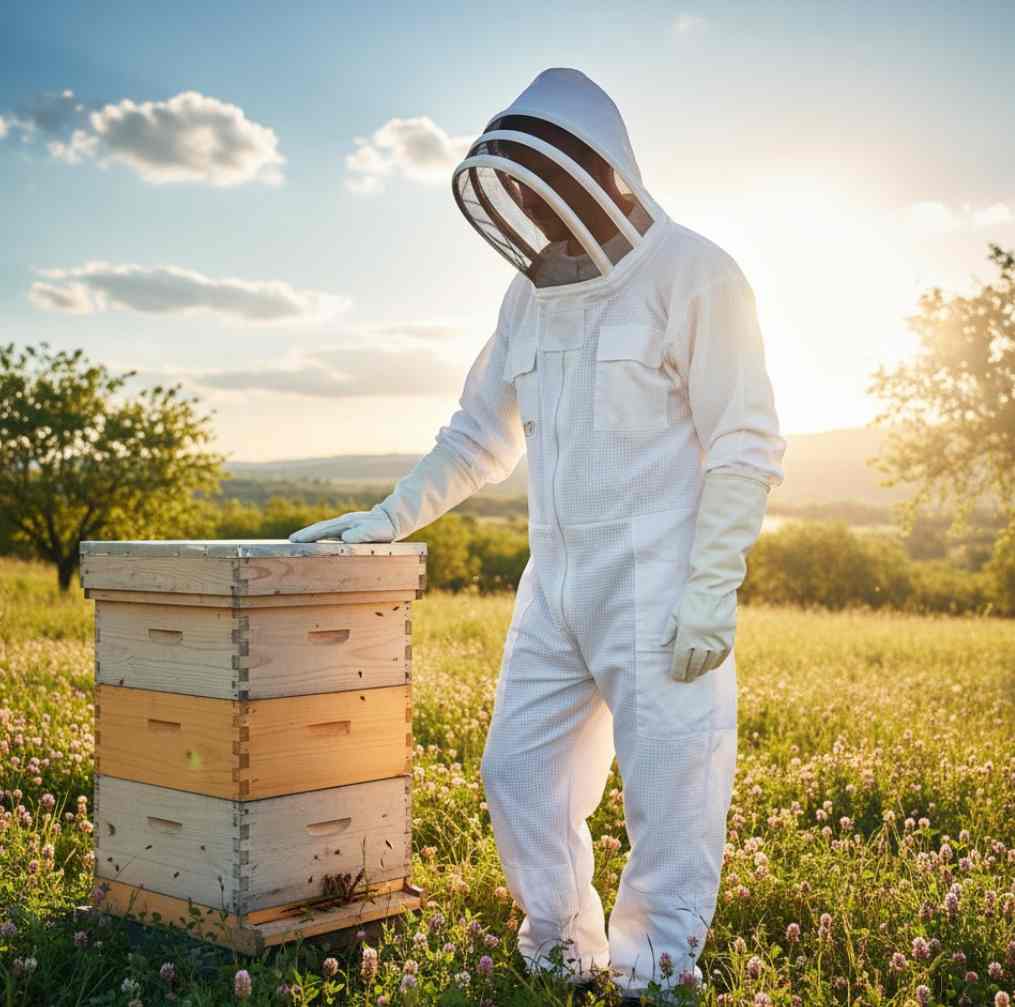Beekeeping Guide
Scents & Cleanliness: Smell Smart for Calmer Bees
Bees “read” the world through scent. Keeping strong odors away—and keeping your gear clean—can make inspections noticeably calmer and faster.

Why Scents Matter
- Alarm odor: Stings leave an alarm scent (often described as banana-like) that can attract guards to the same spot.
- Perfumes & products: Strong personal scents can draw attention or irritate bees during handling.
- Residue on gear: Sticky propolis, spilled honey, and old alarm odor on suits/gloves can ramp up defensiveness.
What to Avoid on Inspection Day
| Avoid | Why | Better Choice |
|---|---|---|
| Perfume, cologne, aftershave, strongly scented deodorant | Can provoke interest or irritation | Unscented deodorant & soap |
| Hair spray & scented oils | Concentrated odors near the veil | Minimal, unscented hair products |
| Fruity gums/drinks (banana-like) | May resemble alarm odor cues | Plain water; mint gum at most |
| Fuel smells (garage, diesel, lighter fluid) | Harsh, lingering odors in fabric | Store gear away from fumes |
| Fabric softener sheets | Leaves strong perfume on suits | No softener; air-dry instead |
Cleanliness: Suit & Glove Care
- Suits & jackets: Close zips; remove detachable veils. Machine wash cold, gentle with mild detergent. No bleach or softener. Hang dry out of direct sun.
- Veils: Hand-wash if removable; avoid high heat that can warp mesh or visors.
- Leather gloves: Wipe with damp cloth + mild soap; rinse lightly and air dry. Condition sparingly after fully dry.
- Nitrile gloves: Use fresh pairs; discard after sticky work.
- Deodorize alarm odor: Rinse affected areas promptly. For suits, a brief rinse with diluted white vinegar (about 1:10) then re-wash with detergent can help neutralize smells. Always test a small area first.
Tip: Keep a “clean kit” (unscented detergent, small vinegar bottle, spare nitrile) near your laundry area.
Storage & Handling Habits
- Air out suits after inspections; let sweat and smoke odors dissipate before storing.
- Store gear dry in a breathable bag, away from fuels/chemicals and strong household scents.
- Wipe sticky propolis/honey from tools and cuffs to avoid attracting robbers next time.
On the Day: Smell-Smart Routine
- Shower with unscented soap; skip perfume/cologne.
- Wear a clean suit and gloves; bring a spare pair of nitrile for sticky tasks.
- Keep a small water bottle + paper towels to rinse off unexpected honey/odor.
- If you get pinged at the veil or stung: step back, scrape the stinger, rinse the area on the suit if possible, and give a light puff of smoke before returning.
Colors & Textures (Quick Note)
Light, smooth fabrics are generally less provocative than dark or fuzzy ones. A slightly looser suit keeps fabric off the skin and reduces noticeable stings.
FAQ
- Is a “banana smell” really a problem?
- Yes—stings leave an alarm scent that some describe as banana-like. Clean the spot, add a little smoke, and carry on calmly.
- Can I use essential oils to “calm” bees?
- Skip them on your clothes. Many strong scents confuse bees. Use a smoker with cool, white smoke instead.
- How often should I wash my suit?
- Light rinse as needed; proper wash every few sessions or whenever it’s sticky/odorous. Keep gloves extra clean.
Comfort & Safety: Neutral scents + clean gear + smooth handling = calmer inspections. Protective wear reduces—but can’t eliminate—sting risk. If you have a known allergy, follow your doctor’s plan.